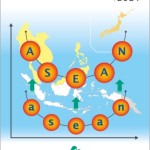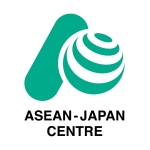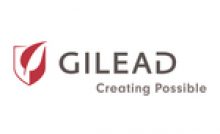Increased Science, Technology and Innovation (STI) in Manufacturing Is the Key to Indonesia in Order to Fully Maximize Benefits From GVC Expansion, According to the Study by ASEAN-Japan Centre


�Global Value Chains in ASEAN on Indonesia is available for download on AJC website
TOKYO–(BUSINESS WIRE)–ASEAN-Japan Centre (AJC) issued Paper 4 of the Global Value Chains in ASEAN series focusing on Indonesia in June 2021. According to the paper, Indonesia manifested a significant share of domestic value added in exports (DVA) at 88 per cent in 2019; however, this high share of DVA is concentrated in manufacturing activities at the lower tiers of production, which require minimum levels of imported input and foreign technology.
Indonesia is the tenth largest economy in the world with a gross domestic product (GDP) of $1.1 trillion. Despite this, the manufacturing sector accounts for only one-fifth of the total value added created. This shows that the manufacturing sector creates small value despite its size, which is twice the size of the primary sector in terms of output. Compared with other upper middle-income countries such as Malaysia and Thailand, Indonesia has maintained the lower-income level and has the slowest growth in manufacturing value added. The expansion of global value chains (GVC) is a good opportunity to improve the technological capability of indigenous manufacturing firms, which is considered one of the keys to escape the middle-income trap.
Higher GVC participation may induce growth through higher trade volume and greater foreign direct investment (FDI). The paper recommends Indonesia to consider adopting this growth model as a policy framework option. FDI figures show that manufacturing accounted for more than 40 per cent during 2014-2019, and is mostly concentrated in medium-technology manufacturing such as foods, metal and machinery manufacturing. The country must strengthen its local industries and market and strategically promote FDI. Policies that encourage the industrial and technological upgrading of the local economy and enhance human resource development, such as advanced engineering, design, and R&D capabilities are required to drive the country towards a more knowledge-intensive and innovation-driven economy.
The maximization of national economic potential does not automatically follow deeper integration into GVCs. Local actors might not have the capabilities to take advantage of exposure to global production networks because requirements such as compliance with international standards, greater managerial and financial resources, and protection of intellectual property may prevent small and medium-sized enterprises from participating. At the national level, the value-added creation process becomes the key. This is where the national innovation systems (NIS) role through effective science, technology and innovation (STI) policy is vital in maximizing spillover effects.
A well-planned NIS could be the bridge that could transform foreign technology into indigenous technology in the manufacturing sector. The government needs to prioritize upgrading the indigenous manufacturing firms within GVCs, particularly at the medium-low technology and medium-high technology levels, as most indigenous manufacturing firms remain in low-technology sectors. The Indonesian government needs to establish a well-planned and efficient NIS focusing on industrial catch-up and coordination with key ministries involved with industry, R&D and higher education to support the upgrading of indigenous manufacturing firms within the GVC. In line with this, STI policy agents need to focus on creating a network to transform foreign technology into indigenous technology capability instead of creating something that is purely local.
Global Value Chains in ASEAN: Indonesia is available for download on AJCs website as below.
https://www.asean.or.jp/en/centre-wide-info/gvc_database_paper4/
Contacts
ASEAN-Japan Centre (AJC) PR Unit
Tomoko Miyauchi (MS)
URL: https://www.asean.or.jp/en/
TEL: +81-(0)3-5402-8118
E-mail: toiawase_ga@asean.or.jp
Recent Posts
AIA Hong Kong continues to lead the insurance industry with 9 market No.1 in 2024
Number of New Business Policies tops the market for 11 consecutive years HONG KONG SAR…
Feng Wei Ju and 8½ Otto e Mezzo BOMBANA Garner Coveted Diamond Awards in Black Pearl Restaurant Guide 2025
MACAU SAR - Media OutReach Newswire - 25 April 2025 - 2025 Black Pearl Restaurant…
Creww and Real Madrid Next launch Batch 2 of “Real Madrid Next Accelerator for Asia”
TOKYO, JAPAN - Media OutReach Newswire - 25 April 2025 – Creww Inc. (Japan Office:…
Digital Storytelling: “Zhengzhou in Cultural Relics” Debuts with AR Reconstructions Global Premiere on International Day for Monuments and Sites
ZHENGZHOU, CHINA - Media OutReach Newswire - 25 April 2025 – On International Day for…
Chinese and foreign guests gather to talk about innovation and development of Museum in Liangzhu, Hangzhou
HANGZHOU, CHINA- Media OutReach Newswire - 25 April 2025 - From April 23 to 25,…
Hang Lung’s 65th Anniversary Celebrations Arrive at Shanghai Grand Gateway 66 and Plaza 66 Debut of “ButterBear” & Takashi Murakami’s Ohana Hatake Pop-up
Fuel double-digit growth in foot traffic and sale HONG KONG SAR and SHANGHAI, CHINA -…



